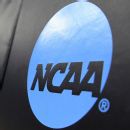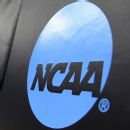The SEC has asked the NCAA to rescind a pending rule change that will allow athletes and athletic department staff members to bet on professional sports beginning on Nov. 1, according to a copy of a memo obtained by ESPN.
SEC commissioner Greg Sankey sent a letter to NCAA president Charlie Baker on Oct. 25, stating that during an Oct. 13 conference meeting, «The message of our Presidents and Chancellors was clear and united: this policy change represents a major step in the wrong direction.»
manipulated his own performance for gambling purposes and conspired with two other players in a prop betting scheme. The NCAA is investigating 13 additional players from six schools regarding potential gambling violations dealing with integrity issues.

On Oct. 22, when the NCAA announced the adoption of the new proposal, it stated that approving the rule change «is not an endorsement of sports betting, particularly for student-athletes.»
«Our action reflects alignment across divisions while maintaining the principles that guide college sports,» said Roberta Page, director of athletics at Slippery Rock and chair of the Division II Management Council, in the NCAA’s news release. «This change recognizes the realities of today’s sports environment without compromising our commitment to protecting the integrity of college competition or the well-being of student-athletes.»
Sankey wrote that the «integrity of competition is directly threatened when anyone with insider access becomes involved in gambling.» He also said the SEC is «equally concerned about the vulnerability of our student-athletes.»
«The SEC’s Presidents and Chancellors believe the NCAA should restore its prior policy — or a modified policy –communicating a prohibition on gambling by student-athletes and athletics staff, regardless of the divisional level of their sport,» Sankey wrote. «While developing and enacting campus or conference-level policy may be considered, the NCAA’s policy has long stood as an expression of our collective integrity, and its removal sends the wrong signal at a time when the gambling industry is expanding its reach and influence.»
ESPN’s Pete Thamel contributed to this report.








